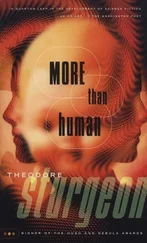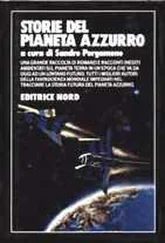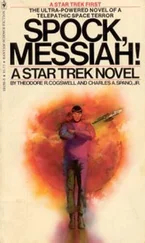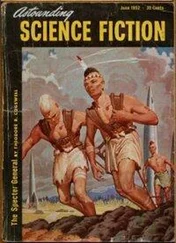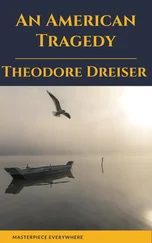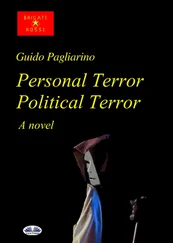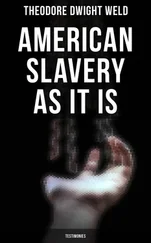Paraska threw another log on the fire. She stared at the pot of water that was just starting to boil, her eyes filled with tears. With difficulty, she said, “My poor Philip is dying. Our house is poor and full of sickness. Philip’s head throbs and he coughs all night. Cornelius and Leyzarov, those sons-of-bitches, still won’t give him a pass to travel to Pinsk to see a doctor. They keep saying he’s just being lazy and trying to get out of hauling logs for the new canal. I’ve pleaded and pleaded with them, but it’s no good. My poor husband is suffering a slow, agonizing death, and they don’t care …”
She wept bitterly. Then all at once, her expression changed and her eyes were on fire. She shouted in a voice that was not her own, “Murderers! Nothing but murderers, all of them!”
Kulik couldn’t think of anything to say that would make her feel better. “How goes it with your cow Rohula?”
“Rohula had a calf late in the fall. But it’s nothing to celebrate. I see you haven’t heard. The Village Soviet has ordered that every cow in our region must produce a quota of ten liters of milk a day, and those liters are to be handed over to the regime. Ten liters of milk a day! How in God’s name can Rohula come up with ten liters a day? Our forage is no good and all our cows are mangy, nothing but skin and bones. What does that leave our children? The villagers have begged Kokoshin for at least a cupful, but he just shakes his head and laughs, he blames the shortage of milk on poor farm management. He says that in Russia a cow produces up to fifteen liters a day, and with no problem! He says that we’re hostile and anti-Soviet; he says that under the Poles, we were happy to give up all our milk to the Polish masters. He keeps saying that all Ukrainians have bourgeois tendencies, that they’re dangerous to any socialist society. And all this for a cup of milk!”
Kulik looked gravely into her face. “And what happens to the milk you get from Rohula?”
“They let me keep one liter, but that one liter is assigned to the calf. My children are left with nothing.” Then hesitating a moment, brushing her hair away from her face, “The Poles were ruthless, but they never squeezed the last drop of milk out of our cows, and we were always able to find something for our children. Now there’s nothing. Every day we’re forced to drag our milk to the Clubhouse, where they put it on wagons and take it to Pinsk and from Pinsk, straight to Moscow. They’ve already begun to take rye out of our storage sheds, meat from our root cellars; they’re even confiscating hemp from the old women. Grandfather Cemen, may he rest in peace, was right. This is the beginning of the end.”
After Paraska left, Kulik continued to sit by the stove. After a while the kitchen door was pushed open and Sergei came in. In the dim light, he did not appear to be himself. His shoulders were hunched, and he moved with effort. At the teachers’ conference in Pinsk, Kulik had noticed something strange about him, especially toward the end. He had become withdrawn and uncommunicative, and had settled himself in a chair in the back, against the far wall. Something seemed wrong.
Kulik stiffened in shock when Sergei stepped into the light. There were bruises on his cheeks and around his eyes. His left ear was swollen; the lobe was caked with blood. It was obvious someone had given him a terrible beating. Feeling utterly helpless, Kulik tried to get him to sit him down on a chair by the stove and take some hot tea. Sergei resisted.
“Let me stay on my feet a little longer. If I could just start walking and walking … If only I could run … just run.”
Looking as if he were about to collapse, he made an obvious effort to pull himself together, and flicking his eyes about the room, asked, “What’s become of Paraska? Has she gone? Yes? Good, we’re alone. Are all your doors locked? Lock them now. Promise me you won’t say a word to anyone. Even if they pump air into your stomach or shove their fists down your throat — promise me.”
“Sergei, what happened to you?”
“Things are bad, very bad.”
Kulik waited.
“Do you remember when I didn’t show up for the lectures on Tuesday? Do you remember I left and never came back? Did you notice that the officials were not interested in my whereabouts? That’s because they knew where I was. They knew everything. Everything.”
“Sergei, what are you saying? Where were you?” Kulik was afraid to hear the answer. Then it came:
“I was at NKVD headquarters, in the Zovty Prison. Lieutenant Sobakin summoned me to his bureau. I was there exactly four hours. And believe me, the meeting wasn’t pleasant. You can see what they did with me….”
Kulik’s head spun. “This is how it starts,” he mumbled, hardly aware of what he was saying. “This is just the beginning. This is just the beginning.”
Sergei went on. “The spider has already started to weave its web, and it’s only a matter of time before I get trapped in it. When I first came into Sobakin’s office that Tuesday, he was friendly, very friendly. He said, ‘It’s very pleasant to see you.’ He patted me on the back, even offered me a cigarette, although he didn’t offer to shake hands. Then his eyes started to glisten and I knew instantly it was all leading up to something very serious. And sure enough it was. He sat at his desk and wrote down my name, then the names of my parents, my family. After that, he smiled and started asking a lot of questions. What was my political orientation? What did I do before the war? Where did I study? Who paid for my education? Did I ever belong to any organizations? Did I belong to the Ukrainian Nationalist movement? Did I serve in the Polish army? What do I think of Cornelius, the Village Chairman? How do I feel about Buhai and Chikaniuk? Do I have something to say about Hrisko Suchok. And then …”
He lowered himself into the chair Kulik offered him.
“And then … What did I know about you, Kulik? Did I know where you’re from? Did I know that you came from a bourgeois background? That you were the son of a servant who worked in a Polish rectory? Was I aware that you maligned Soviet policies? And that when you were a student, you were an active member of some Ukrainian nationalist movement that planned terrorist activities against Party members and the government? I tried to explain to him that I didn’t know anything about all that, but he just sneered and said, ‘Don’t toy with me. I know you and Ivan Kulik are good friends.’ Later he warned me, ‘Just remember one thing: it’s your duty as a Soviet citizen to disclose all information on conspirators.’
“When I tried to defend you, he turned red in the face and banged the table with his fist. He glared at me and said, ‘Didn’t you hear Kulik’s speech at the conference?’ I acted as if I didn’t know what he meant. When I called him ‘Comrade Sobakin,’ he got up and came toward me. He said, ‘Comrade? I’m no comrade of yours!’
“And how right he was. I was certainly no comrade of his, how could I have been? He had a.22 caliber pistol in a holster and I stood before him defenseless. He could have done anything to me that he wanted: he could have shoved his fist in my face, bashed in my head, broken my neck. He had the authority to wipe me off the face of the earth and not give it a second thought. And what could I do? Nothing, except spit in his face.”
Sergei closed his eyes. He said quietly and seriously, “Sobakin knows you’ve been encouraging Ukrainian in the school; he accused me of supporting you. He made up charges against me: I distribute bourgeois nationalistic propaganda brochures at night; I belong to the Organization of Ukrainian Nationalists, and I’ve helped its regional leader, a man by the name of Litovsky, go into hiding; I vilify Stalin publicly and I’m involved in a movement to bring him down. The list went on, and I wondered how I could be guilty of all that. He wanted to force me to admit to everything and sign a confession.
Читать дальше

